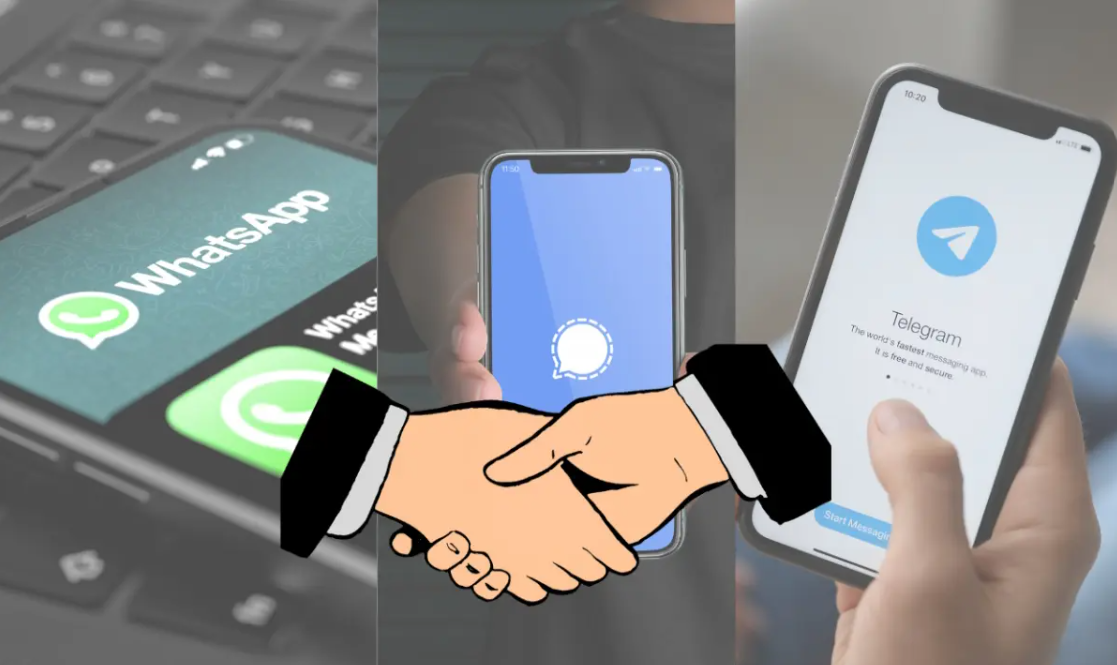WhatsApp Interoperability – Imagine a world where you can effortlessly chat with your loved ones, colleagues, and acquaintances, regardless of their preferred messaging app. This utopian vision is exactly what WhatsApp is striving for with its revolutionary “interoperability” feature, currently under development.

Currently, navigating the world of online communication often means juggling multiple messaging apps, a cumbersome and frustrating experience. If someone you want to reach isn’t on your preferred platform, you’re left out of the loop, creating unnecessary communication barriers. Interoperability aims to dismantle these walls, allowing WhatsApp users to seamlessly send and receive messages with individuals on other popular platforms such as Telegram, Signal, and Google Messages. This ambitious undertaking has the potential to reshape the online communication landscape, impacting billions of users worldwide.
Unlocking a World of Benefits: Why Interoperability Matters
The potential benefits of interoperability are vast and compelling:
- Effortless Communication: Ditch the app-switching fatigue! Interoperability promises a world where you can connect with all your contacts, irrespective of their chosen platform, fostering a more streamlined and unified communication experience.
- Streamlined Digital Life: Imagine simplifying your digital life by managing just one messaging app for all your communication needs. Interoperability could pave the way for a future with fewer apps to juggle, reducing the complexity of your digital ecosystem.
- Fueling Innovation: By breaking down these communication silos, interoperability opens doors for exciting new possibilities. Developers can create innovative features and services that seamlessly work across different platforms, fostering a more dynamic and ever-evolving messaging landscape.
Navigating the Road Ahead: Challenges and Considerations
While interoperability presents a promising future, there are crucial challenges that need to be addressed:
- Ensuring Security and Privacy: Different messaging apps employ varying levels of security and privacy measures. WhatsApp must devise a secure and reliable way to guarantee that messages sent across platforms remain confidential and protected.
- Bridging the Technical Divide: Each messaging app utilizes its unique protocols, akin to the languages they use to communicate. Finding a way for these diverse “languages” to work together flawlessly is essential for ensuring smooth interoperability.
- Securing Widespread Cooperation: Not all app developers will readily embrace interoperability. For instance, Apple might be hesitant to allow WhatsApp users to communicate with iMessage users. This lack of widespread cooperation could hinder the feature’s success and limit its potential impact.
A Glimpse into the Future of Communication
Interoperability has the potential to revolutionize the way we connect and interact online. However, its successful implementation hinges on effectively addressing these challenges. If these hurdles can be overcome, interoperability could usher in a new era of seamless, user-friendly, and universally accessible online communication, fostering a more connected and collaborative digital world.
Additional Points to Consider:
- WhatsApp has not yet officially announced the launch date or the specific apps that will be compatible with interoperability, as the feature is still under development.
- User control and choice will likely play a crucial role. Users should have the option to opt-in to interoperability and select which contacts they wish to communicate with across different platforms.
- As the feature evolves, staying informed is key. Keep an eye on updates from WhatsApp and other reliable sources to stay abreast of the latest developments.
Interoperability in messaging could be the key to a future of seamless, efficient, and inclusive communication across all platforms.

